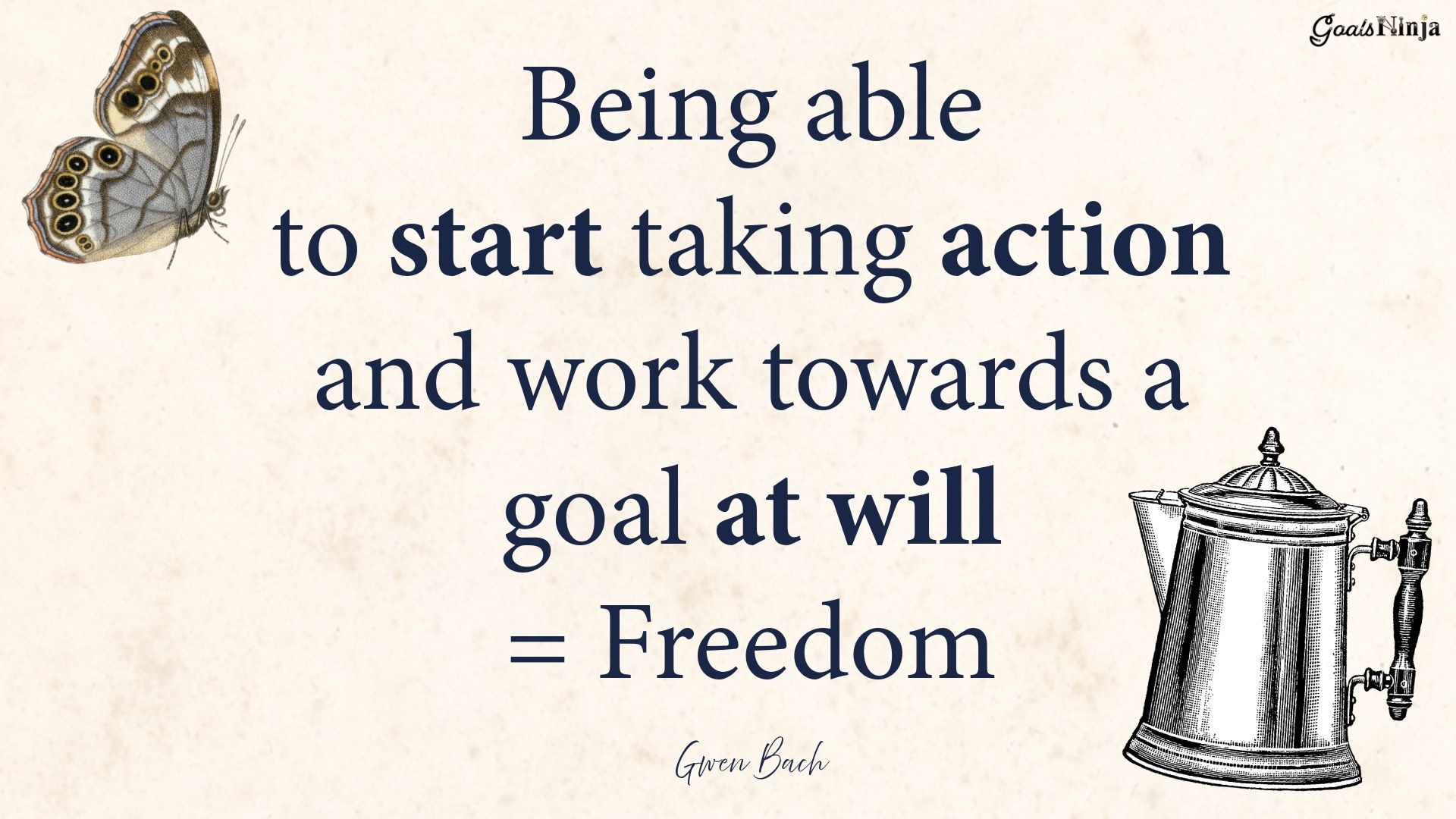What is Freedom? The Science Behind Taking Action
Mar 06, 2025
Freedom isn’t just about external choices—it’s about having the ability to act on your goals at will. True freedom means deciding on a goal that is attainable for you and taking consistent, deliberate steps toward it. Whether learning a language, starting a business, or improving your health, consistent action is key.
For example, if I want to learn a new language, I might start doing Duolingo daily. If I’m feeling ambitious, I’ll add 30 minutes of Pimsleur. Over time, these small actions accumulate, and I begin to see progress. And here’s the fascinating part—as soon as we engage in goal-directed action, we feel better almost instantly (Wang & Milyavskaya, 2020). Our brains respond positively to movement toward a goal, even before we see results.
The Science of Goal-Directed Action and Well-Being
Research consistently shows that goal-directed actions significantly contribute to mental well-being, life satisfaction, and overall happiness. But it’s not just about setting any goal—the motivation behind the goal and how we pursue it matters.
Goal Self-Concordance and Well-Being
-
The Self-Concordance Model (SCM) suggests that goals aligned with personal values and intrinsic motivationlead to greater well-being, while those driven by external pressures can have adverse effects (Subaşı, 2025).
-
The Goal-Striving Reasons Framework highlights that pursuing goals for intrinsic reasons, such as enjoyment or personal growth, enhances psychological functioning and life satisfaction (Ehrlich, 2022).
Health-Related Goals and Happiness
-
Goals related to health and well-being are strong predictors of happiness. A study among South African youthfound that health aspirations were closely linked to increased life satisfaction (Davids, 2024).
Goal Coordination in Relationships
-
In romantic relationships, successful goal coordination—through emotional support and shared commitment—leads to better goal outcomes and greater life satisfaction (Rosta-Filep et al., 2023). This means that when you and your partner align on goals, you’re more likely to achieve them and feel happier.
Goal-Setting Interventions: How to Make Goals Work for You
-
Goal-setting interventions improve goal attainment and need satisfaction, increasing positive emotions (Bahrami et al., 2022).
-
Digital tools, such as goalification apps, have been shown to support goal execution and engagement across various life domains (Schönböck et al., 2024).
The Role of Socio-Cultural Context in Goal Success
-
The effectiveness of goal-directed action depends on cultural and social factors. In youth mental health settings, for example, open communication and shared decision-making make goal-setting interventions more successful (Jacob et al., 2024).
The Bottom Line: You Reap What You Sow
While goal-directed action generally improves well-being, the impact varies depending on personal values, social support, and environmental factors. The important takeaway? There is no magic pill. Buying another course or waiting for the perfect moment won’t change anything—but taking action will.
So today, let’s commit to something radical: Stop overthinking, stop looking for shortcuts, and just do the work.Whether it’s five minutes or an hour, taking action—no matter how small—brings you closer to where you want to be. And that? That’s real freedom.
Get your free Worksheet to reduce stress, improve mental clarity, and build resilience.
Follow this step-by-step process to overcome negative automatic thoughts and be the boss of your brain!
We hate SPAM. We will never sell your information, for any reason.

